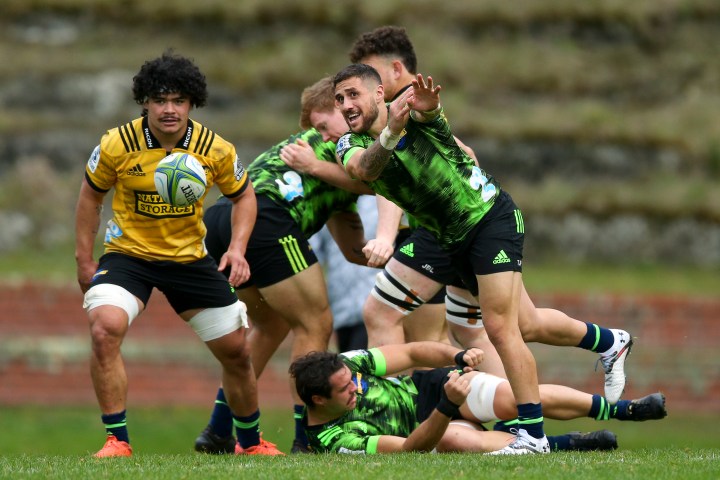Sport
NZ introduces law tweaks for Super Rugby replacement tournament

As South African rugby players prepare to return to training this week without a clear date on when they will play competitively again, New Zealand Rugby announced several innovations for their new domestic competition.
New Zealand has the Covid-19 pandemic under control. It has had it in check for a month, and as a consequence, many sectors of their society are open and returning to something resembling “normality”. Rugby, which certainly ranks high on New Zealand’s list of priorities, will return on 13 June 2020 in their newly restructured competition called Super Rugby Aotearoa.
The competition replaces the dead-in-the-water 2020 Super Rugby tournament. Super Rugby has always used its vast geographical footprint as a selling point, but in a Covid-19 world, the distances have ensured it is unsustainable.
There is no scope for international travel under the restrictions designed to stop the spread of Covid-19. With the five participating countries – NZ, Australia, South Africa, Argentina and Japan – all on different levels of lockdown, each country has been making alternative plans.
New Zealand Rugby (NZR) is well ahead of the rest – not an unusual situation at the best of times – because of their apparent success in combating Covid-19.
Super Rugby Aotearoa will feature New Zealand’s five professional rugby franchises – the Blues, Chiefs, Crusaders, Highlanders and Hurricanes – as well as some trial laws such as red card replacements and a “golden point tiebreaker”.
The Highlanders face the Chiefs in the opening game in Dunedin on Saturday, 13 June before the Blues take on the Hurricanes the following day. The competition involves two games each weekend over the course of 10 weeks.
Law changes
Red card – Players who receive a red card can be replaced with another player 20 minutes after they are sent from the field. The ejected player cannot return to the field and will face Super Rugby’s existing judicial process. There is no change to the yellow card sanction, which sees a player leave the field for 10 minutes.
“While players should, and still will be, punished for foul play, red cards can sometimes have too much of an effect on a match,” NZR Head of Professional Rugby Chris Lendrum said. “There are no winners when a player is red-carded, but paying rugby fans, players and coaches want to see a fair contest. Replacing a player after 20 minutes strikes the right balance.”
Breakdown – NZR National Referee Managers’ Bryce Lawrence said the existing laws at the breakdown would be applied more strictly to create a faster attacking ball and a fairer contest.
“Fans enjoy Super Rugby because it’s a fantastic spectacle and our referees like to allow the game to flow. We’re confident we’ll see a contest that is faster, fairer, safer and easier to understand,” Lawrence said. “We’re not changing the laws of the game, we’re being stricter about how we referee them.”
The key focal points for referees at the breakdown are that ball carriers will be allowed only one dynamic movement after being tackled. Crawling, or any secondary movement other than placing or passing will be penalised.
Tacklers will be expected to roll away immediately in the direction of the side-line. This will be the referee’s “number one priority” at the tackle. There will be “extra focus” on the offside line with defenders expected to be “clearly” onside to provide attacking teams more space.
Golden point – If a match is tied after 80 minutes of regular time, the result will be decided by golden point. The first team to score – by drop goal, penalty kick, or try – during a 10-minute period of extra time will take the win and earn four competition points.
In 25 years of Super Rugby and in 360 completed matches (two games were called off due to the 2011 earthquake and the 2019 mass shooting – both in Christchurch), there have only been seven draws, so the golden point is unlikely to be a major factor.
“Draws can often leave everyone feeling a little empty and after feedback from our coaches and players, we have added the golden point rule,” Lendrum said. “We’ve seen the excitement it can generate in other codes and we think it adds a real edge.”
If a team loses via golden point, they can still earn bonus points for scoring three or more tries than the opposition in either regular time or extra time. DM



















 Become an Insider
Become an Insider